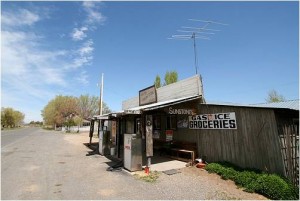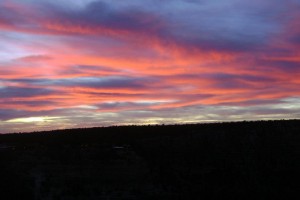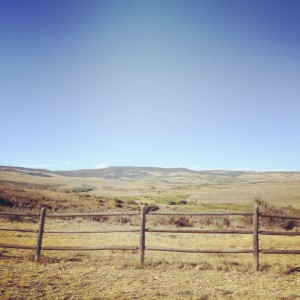Home > Soapbox > Location, location, location!
Location, location, location!
 My father’s cautionary advice to me upon purchasing a first home. “Nothing else matters, Kath, location, location, location.” It was good advice, I was glad to have it. The advice, it turns out, is relevant to a novel’s setting too, but since Dad had no similar editorial advice, Clark and I learned this literary lesson — and the ripple effects on everything from post-publishing marketing strategies to taxes — on our own.
My father’s cautionary advice to me upon purchasing a first home. “Nothing else matters, Kath, location, location, location.” It was good advice, I was glad to have it. The advice, it turns out, is relevant to a novel’s setting too, but since Dad had no similar editorial advice, Clark and I learned this literary lesson — and the ripple effects on everything from post-publishing marketing strategies to taxes — on our own.
Here are four fruits of that experience, interspersed with a running deliberation on a related question: does the literary ball-and-chain “write what you know” meme apply to setting choice too? (For sure, hell no and it depends).
Setting as character. First and foremost is artistry. A well-selected location becomes, in effect, a character in the book. By contrast, a poorly selected location is the difference between a lovingly hand-sewn quilt, each square of fabric pulled from some memory, and a graying polyester sheet.
Think of the books you love and, for most, you’ll also feel a resonance with the setting. Easy Rawlins would be less easy without New Orleans. Tony Hillerman breathes the mysticism of the southwest United States. I wanted to drink whiskey in Boston after going on countless bar dates with Spenser and Susan, as described by Robert Parker. The vibrancy of neighborhoods in D.C., just blocks from the marbled halls of democracy, is brought to life by George Pelecanos.
This is the literary aspect of the choice of setting.
 In The Cowboy and the Vampire Thriller Series, Tucker and Dad rely on their connection to the mountainous landscape as a moral anchor as they struggle to make sense of the paranormal world of vampires.
In The Cowboy and the Vampire Thriller Series, Tucker and Dad rely on their connection to the mountainous landscape as a moral anchor as they struggle to make sense of the paranormal world of vampires.
As for that ball-and-chain meme, yes, it helps to know the setting, but it’s not essential. You can always start up a new relationship. Go visit the setting of interest. Flirt, get to know it, spend a few nights. But the sense of connection matters. Can you write the emotion, appearance and history of the setting? If not, pick somewhere else.
Motivation. Reason number two is that it might actually help you finish the damn thing.
The hardest part of writing a novel is writing a novel.
Everyone has an idea for a novel — and I mean everyone. Need convincing? Turn around right now wherever you happen to be and ask; chances are, you’ll find as many ideas for novels as people around you. Next, and more important, count how many people you know who have actually finished a novel. (Put aside the issue of publishing this novel for now. This post is about writing.) One? Maybe three have finished a novel? Zero?
What separates a writer from a dilettante is tenacity combined with fearlessness. The tenacity to commit to words and the fearless discipline to change the words, over and over again, and then to delete some of the words and finally to string the words together, first in a sentence or group of sentences that are evocative, descriptive and also functional, meaning they move the plot along. After all this, if you are both talented and tenacious, the real miracle happens: you move from the first word to the 80,000th word.
It’s back-breaking and sweaty work.
 When tenacity deserts you, your setting can save you.
When tenacity deserts you, your setting can save you.
On clumsy-finger days when all the words spilling out of the keyboard feel stupidly thick and Wal-Mart clunky, when the sentences mirror metronomic learn-to-read text books rather than lyricism, when the clock ticks relentlessly, bills pile, and mojitos run low, make a dash to the refuge offered by a familiar landscape.
A setting of childhood kickball? The sweaty cobbled street paths of first love? Is your setting imbued with secrets of a life not taken or the grandeur of the Tetons? In these moments of weakened tenacity, relax into the setting and write it really hard.
In book one of The Cowboy and Vampire Thriller Series, we selected the real town of Big Piney, Wyoming as the setting for LonePine: the epitome of a dying western town, a crisp and brutal mountainous landscape that beneficently sucks in the meaninglessness of humanity and breathes out consequence.
Clark spent many days in Big Piney while his father worked on nearby drilling rigs.
In the frequent moments when creativity is elusive, we dive headlong into an extreme exercise, detailing the local bar, the rodeo, the broke cowboy, or the Tetons. The rest follows.
But on the flip side, if you pick a setting that you want to know, that gives you permission to spend time “researching” the setting in order to write about it. We just returned from Key West, Florida, where we snorkeled and kayaked and watched the sunset and discovered sharks and vampires among the tropical coral reefs. We also discovered that cowboys love mojitos. Book Three will feature mojitos, and maybe pirates.
Niche marketing. The editor of the New York Times Book Review will be unimpressed by the fact that a book is set in Manhattan.
The editor of the Lake County Examiner in eastern Oregon may find the fact that part of the book is set in Plush, Ore., a town near the county seat, newsworthy.
The range and readership of those two publications is correlative to the probability of having a book review published in one or the other.
The second book in our series, Blood and Whiskey, includes several gruesome scenes in a human blood farm for vampires set in Plush, a remote and distantly rural area where the roads are rugged, antelope out-populate people, and summertime mosquitoes suck you senseless.
The local newspaper wrote an article about Blood and Whiskey. The library can’t keep it in stock. We’ve been invited for a book club meeting.
The New York Times has not written a review. Yet.
Eventually, the accumulation of fans from Plush, Oregon will influence the Manhattan market, we figure.
A thoughtfully selected location provides you with niche post-publication marketing angle, but only if you pick well. In other words, minimize the competition.
Tax-deductible travel. Writing is a business. Traveling to the setting of your book is a business expense. Don’t take my word on it, talk to someone whose business is taxes. But this only works when combined with tenacity: you have to have some words to show for it, not just a tan. And ideally, book sales too. No cheating on this one.
So go on. Tenaciously and fearlessly write words in the remote outskirts of Key West (substitute here whatever town you want) and have a memorable life experience while there. And then write the hell out of it.
